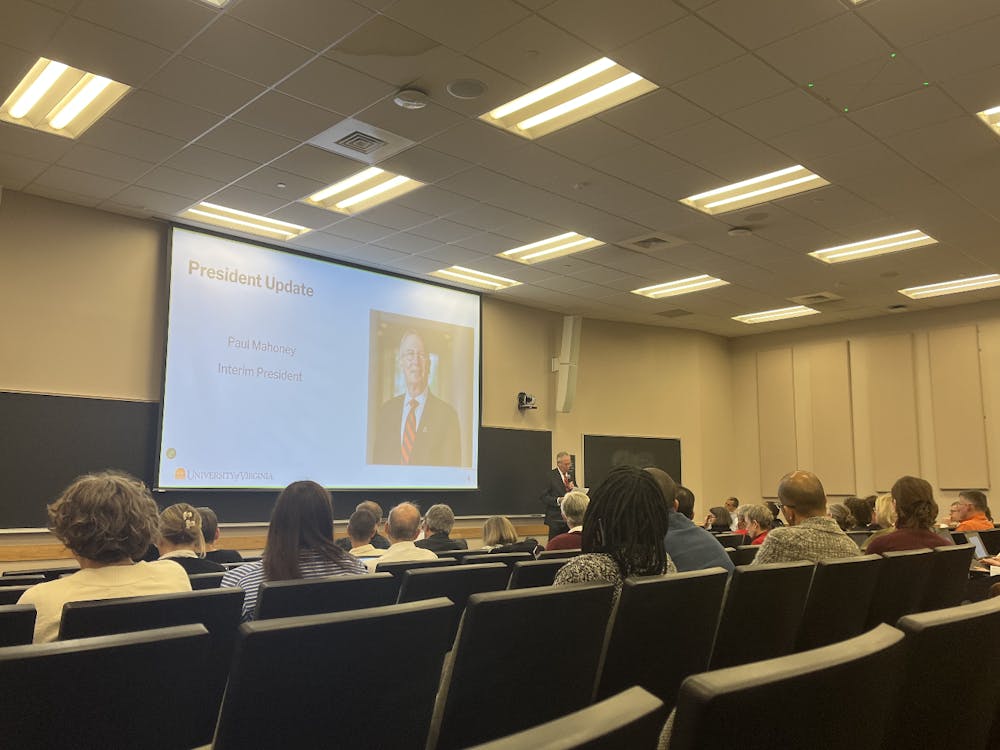The shrill wail of an alarm clock breaks the morning silence, causing millions of groggy Americans to fumble instinctively for the snooze bar.
But the damage already may be done, according to University of California-San Diego psychiatrist Daniel Kripke, who recently found that too much sleep could be a matter of life or death.
Kripke's results appear in last month's issue of Archives of General Psychiatry.
In the largest study of its kind, Kripke and four other medical professionals tracked the sleeping patterns of 1.1 million adults between the ages of 32 and 102. What they discovered might make snooze bars obsolete.
"We have shown that people who sleep more than eight hours per night demonstrate a higher mortality rate than those who sleep seven hours," Kripke said.
The data, compiled from an American Cancer Society survey, suggests that women who sleep eight hours a night have a 13 percent chance of dying sooner than those women who sleep only seven hours.
On the other hand, women sleeping 10 hours a night have a 41 percent chance of dying sooner than their less rested counterparts. He found similar results for men.
Perhaps even more surprising, sleeping five hours per night increased the risk of death by a mere 5 percent in women, and only 11 percent in men.
Kripke did find, however, that controlling for different variables such as diabetes and cancer produced less dramatic figures.
He cannot yet explain why sleeping longer seems to lead to an earlier grave.
"Sleep apnea is one possibility, and depression is another. Both of these conditions tend to occur in long-sleepers," he said. But we're really not sure.
Individuals with sleep apnea experience impaired breathing during sleep and often become drowsy during the day.
His study also shows that mortality rates increased 25 percent among participants who take sleeping pills daily.
So what about the age-old assumption that more sleep is better?
"That's just an old superstition. It's certainly not true that the more you eat the better off you are," Kripke said.
But other sleep experts disagree. University Sleep Laboratory Director Paul Surrat questions the methods used in Kripke's research.
"It's not a very good study since they accepted self-reported sleep time. This is not very accurate," Surrat said.
He also points out that Kripke's team failed to control for other medical conditions that could have influenced the study's results.
"They didn't control for other diseases effectively. For example, someone dying of cancer may spend a lot of time sleeping," Surrat said.
Other critics worry the general public may take Kripke's results out of context.
"We have to consider the possibility that other factors may explain the relationship between increased mortality and longer sleep," said John Harsh, the director of sleep research at the University of Southern Mississippi.
"The data just don't show a causal relationship between more sleep and mortality that would suggest people need to sleep less," he added.
But Kripke said he never intended to recommend sleeping less - other unknown factors could explain his results.
"We're not saying that somebody who enjoys eight or nine hours of sleep should set their alarm clock an hour earlier," Kripke said.
So how should the average college student interpret the new study?
Kripke advises staying in bed for the extra bit of sleep.
"It's certainly not something for college students to be worried about," he said.
| Drinking on college campuses |
Source: Core Institute, 2000. |






